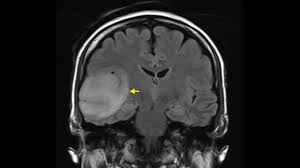Understanding how a medical team evaluates a brain tumor can provide clarity during a complex time. A brain surgeon uses a systematic approach to assess a tumor’s characteristics and potential risks. This process involves examining various factors, including the patient’s health history and the specific details revealed by imaging tests. The goal is to create a comprehensive picture that guides further steps.
Which Factors Increase Tumor Risk?
A brain surgeon will review a patient’s personal and family medical history to identify known risk factors associated with brain tumors. While the exact cause of most brain tumors is unknown, certain elements may be associated with a higher likelihood of developing one. These factors help form a complete profile of the patient’s situation.
- Age: The likelihood of developing many types of brain tumors often increases with age. Some specific tumor types, though, are more common in children.
- Family History: A small percentage of brain tumors are linked to genetic conditions. A family history of certain syndromes can sometimes indicate an elevated risk.
- Radiation Exposure: Previous exposure to ionizing radiation, particularly to the head, is a recognized risk factor. This exposure may come from prior medical treatments for other conditions.
Evaluating these elements is part of the initial assessment. This information, combined with diagnostic results, helps the medical team understand the context of the tumor. The presence of one or more risk factors does not automatically mean a tumor will develop, but it provides helpful information for the evaluation.
How Do Surgeons Assess Severity?
After a potential tumor is identified, neurosurgeons and radiologists use advanced imaging to assess its severity. Magnetic resonance imaging (MRI) is a common tool that provides detailed pictures of the brain. These images show the tumor’s size, its precise location, and its relationship to surrounding brain structures.
A brain surgeon analyzes these images to determine if the tumor is located near areas that control movement, speech, or sensory functions. The location significantly influences the surgical approach and the potential challenges that may arise. The imaging also helps determine whether the tumor appears to be contained or if it has spread into nearby tissue, which can indicate its potential aggressiveness. In some cases, a biopsy is performed, where a small tissue sample is removed and examined by a pathologist to identify the specific cell type and grade of the tumor.
How Are Treatment Options Decided?
Deciding on the best treatment for a brain tumor is a significant process, managed by a team of experts. This team typically includes a brain surgeon, oncologists (cancer specialists), and radiologists (who interpret imaging results). They carefully review your diagnostic test results, taking into account the tumor’s type, grade (indicating its aggressiveness), size, and location. Your overall health, age, and personal priorities are also key. This comprehensive assessment guides the team in developing a personalized treatment plan. Common approaches include:
- Surgery: This is often the first step, aiming to remove as much of the tumor as safely possible. The extent of surgery depends on the tumor’s location and type.
- Radiation Therapy: This treatment uses high-energy rays to kill cancer cells or keep them from growing. It can be used after surgery or as a primary treatment.
- Chemotherapy: These are medications that target and destroy cancer cells throughout the body. They can be given orally or intravenously.
- Combination Therapies: Often, a blend of these treatments is used to achieve the best outcome. Surgery might be followed by radiation and/or chemotherapy.
Your medical team will carefully weigh the potential benefits of each treatment option against any possible side effects and risks. This detailed, multidisciplinary review makes sure that the recommended treatment plan is tailored specifically to your diagnosis and individual circumstances, giving you the best possible path forward.
Consult a Brain Surgeon
Receiving information about a brain tumor can feel overwhelming, but understanding the evaluation process can help. A brain surgeon and their team are the best source of information for your specific situation. They can explain diagnostic results, discuss potential risks, and outline the next steps that might be taken for you. We encourage you to schedule a consultation to get clear, personalized answers to your questions. This will empower you with the knowledge needed to move forward.















